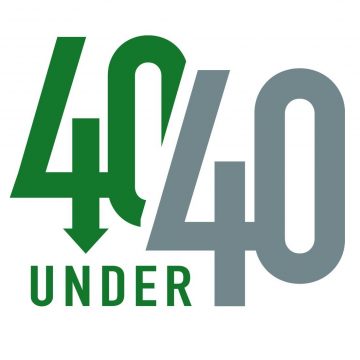When transferring wealth to the next generation, many families prefer to make gifts to younger individuals in a trust rather than gifting the assets outright. This method of gifting assets to a trust can have many advantages, including asset protection, tax planning and maintaining control of the assets. There are many options when making a choice to create a trust, and it’s important to choose the right option for your family.
What is a dynasty trust?
A dynasty trust, also known as a perpetual trust, is a powerful wealth transfer tool because it allows wealth to transfer from generation to generation without triggering transfer taxation such as gift, estate or generation-skipping transfer tax. A dynasty trust is an irrevocable trust with no specified termination date, and the trust lasts as long as there are assets in the trust.
Why use a dynasty trust?
By allocating generation-skipping transfer tax exemption to the assets transferred to the dynasty trust and drafting the trust so that the assets are not included in the beneficiaries’ estates at their deaths, the trust assets escape estate taxation upon the death of each beneficiary. A dynasty trust allows wealth to be available to each generation while never being reduced by transfer taxes. In 2020, the generation-skipping transfer tax exemption amount is $11,580,000 per person and is the same as the lifetime gift and estate tax exemption amount. The generation-skipping transfer tax is a tax levied in addition to the estate tax on assets that pass to individuals more than one generation younger than the transferor, such as grandchildren.
Who would benefit from this tool?
Individuals with taxable estates should consider tools to reduce and eliminate transfer taxes for them and for future generations. Family business owners are great candidates for dynasty trust planning.
Where can a dynasty trust be created?
Ohio law permits settlors to create dynasty trusts by opting out of the Rule Against Perpetuities. Many other states permit perpetual trusts as well.
How does a dynasty trust help the beneficiary?
Properly drafted, the dynasty trust provides asset protection to the beneficiary so that the trust assets are outside the reach of the beneficiary’s creditors and not subject to division upon divorce. The assets are available for the use of the beneficiary but sufficiently out of the beneficiary’s control to maintain these protections. Dynasty trusts are better than any insurance policy a beneficiary can buy. Further, dynasty trust assets are not included in the estates of the beneficiaries, even if the assets double or triple in value.
When can a dynasty trust be created?
A dynasty trust can be created during life or upon death. Individuals with enough core capital to support their current lifestyle through life expectancy are candidates to use transfer tax exemptions during life.
Example: Outright Gift To Dynasty Trust
Client gives assets valued at $11,580,000 to a dynasty trust for the benefit of child of the client. The client allocates $11,580,000 gift tax exemption and generation-skipping transfer tax exemption to the gift to the dynasty trust. The client has removed $11,580,000 from the client’s estate without paying tax today. All assets in the dynasty trust will not be included in the child’s estate or the child’s descendants’ estates and provide asset protection.

The attorneys in the Carlile Patchen & Murphy LLP Family Wealth & Estate Planning Group frequently create dynasty trusts for clients. If you are interested in learning more about this powerful wealth transfer tool, contact your attorney at CPM today.





What happens when you create an irrevocable dynasty trust with stocks that are worth $100M+?
There would be a gift tax imposed on the transfer in excess of the lifetime exemption amount of $11.7 Million (for 2021). If all of the individual’s GST exemption was allocated to the transfer, the trust would be partially GST exempt, which means that a taxable termination of the trust will occur each time the last non-skip person relative to the transferring party dies, resulting in the payment of a GST tax every time this occurs. Generally, it is better to create a trust that is wholly GST exempt, and one that is fully subject to the GST to avoid these complexities when the transfer will exceed the GST exemption.
If my wife and I use up the entirety of our lifetime exemptions when setting up a dynasty trust, can we (and possibly other people) ADD more money to the trust without tax consequences in subsequent years? These additions each year would presumably be limited to the annual federal gift tax exclusion (currently $15k).
Future additions to a dynasty trust are permitted. Use of one’s gift tax annual exclusion is permitted after one has used up one’s lifetime exclusion amount. Under current law, the lifetime exclusion amount is indexed for inflation, so each time an inflationary adjustment occurs, a person who used up all of his or her lifetime exclusion has additional lifetime exclusion available for use.
How can a dynasty trust be best maintained given it will outlive the appointed trustees? Say I want the trust to invest in S&P500 and distribute 2% every year. Is there a company or bank out there that can perform the selling of the stock and distribute the funds to beneficiaries? And I wonder if the management will be too costly.
I have been looking into the same question. I know there are banks (Wells Fargo for example) that do this but it comes with a fee. Would love to hear others opinion of the most cost effective way to do this.
Have a business with 900,000 gross 650,000 net and potentially an everlasting business with 10 to 20 percent annual growth. It is a land recreation business worth $18,000,000 million. Have three sons and 6 grandchildren. One son is married with no children the sons have children. Part of the land has been in the family for 200 plus years. I would like to set it up where my children enjoy the fruit of my hard work as well as my grandchildren, and possibly there children.
My wife and I have about 15 million in our estate,mostly in a family limited partnership. I was wondering what happens when the federal reserve changes the dollar to digital money. Will the dynasty trust still be able to have privacy and owners able to receive income in digital dollars. Are all companies ,corporations,and limited partnerships able to have privacy once the digital dollar is implemented? Supposedly individuals every move can be watched with no privacy,but what about businesses are they screwed also. Tom